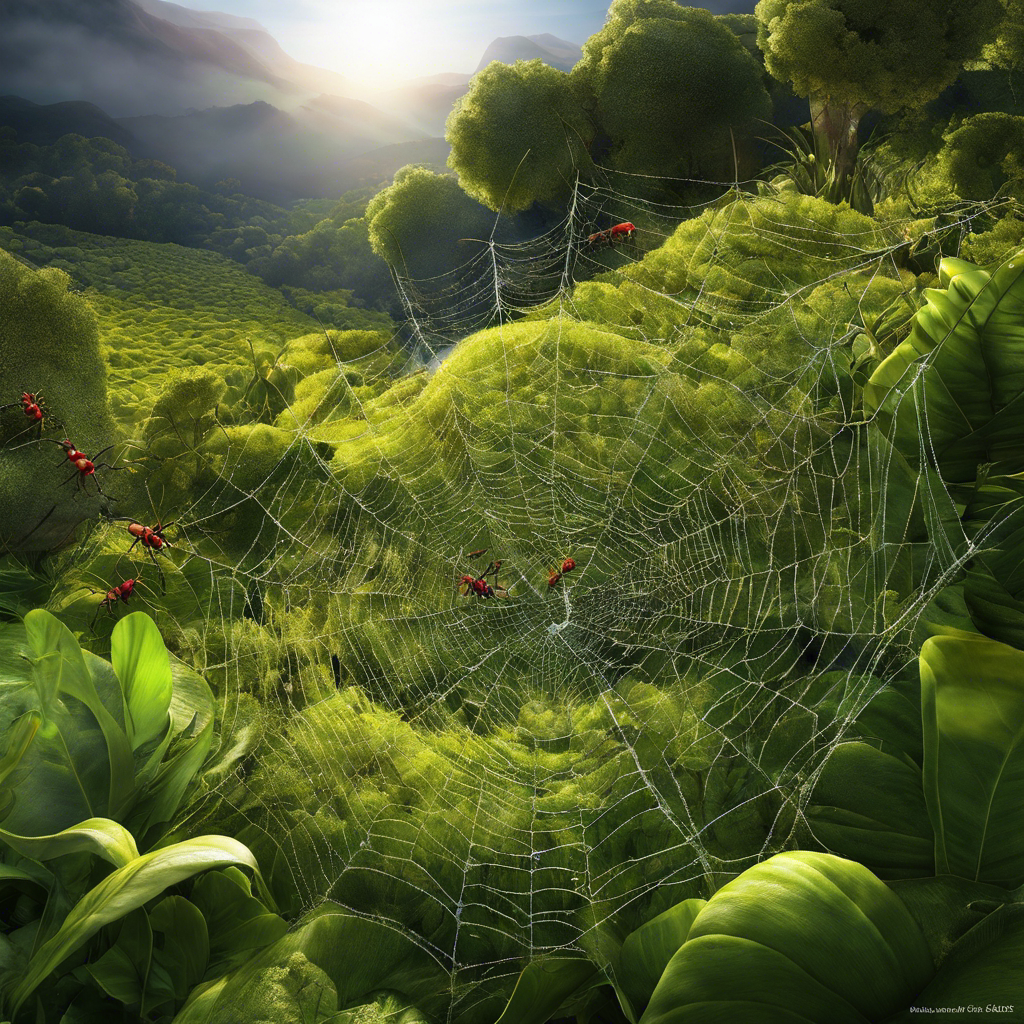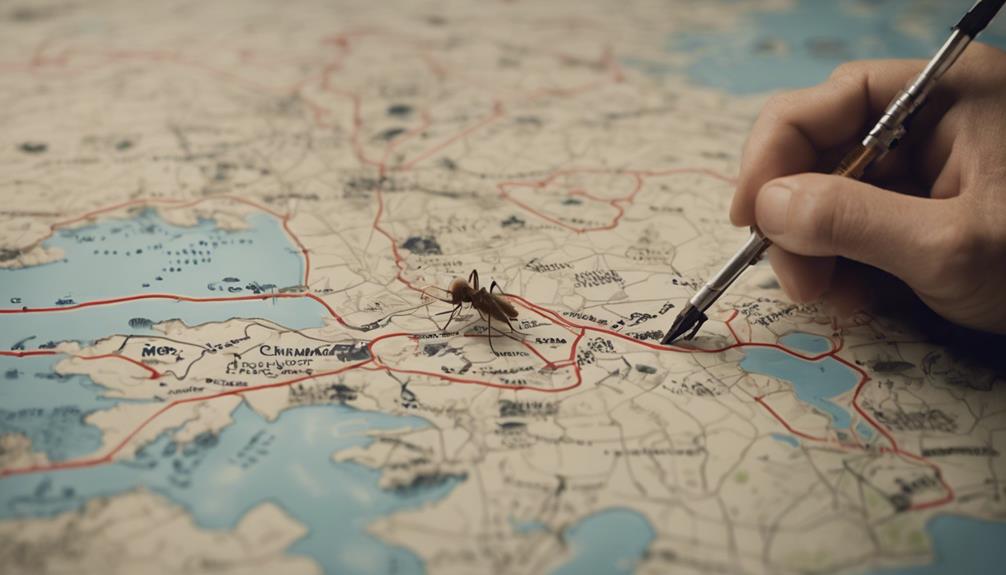Have you ever wondered about the intricate web of life that exists in St George’s ecosystem? Well, let me tell you, the role of ants in this delicate balance is nothing short of fascinating.
These tiny creatures, with their complex social structures and industrious nature, play a crucial role in maintaining the health and functioning of the ecosystem. But what exactly do they do? How do they contribute to the overall balance?
In this discussion, we will explore the various ways in which ants influence their environment, from being soil engineers to serving as seed dispersers. So, grab your magnifying glass and join me as we unravel the secrets of these remarkable insects.
Key Takeaways
- Ants in St George’s ecosystem play a crucial role in improving soil structure and nutrient availability through their activities as soil engineers.
- They contribute to the maintenance of biodiversity by aiding in plant colonization and genetic diversity through their role as seed dispersers.
- Ants act as natural pest controllers by preying on other insects and their eggs, helping to manage pest populations in the ecosystem.
- Their presence and activities support the overall health and functioning of the ecosystem by enhancing nutrient cycling and decomposition of organic waste.
Ants as Soil Engineers
Ants, through their tunneling activities, play a crucial role in soil engineering by aerating the soil and improving water and oxygen circulation. As ants dig their intricate networks of tunnels, they create channels for water and air to flow through the soil, enhancing its overall health and functionality. This process allows for better water absorption and prevents soil compaction, which can hinder root growth.
By improving water and oxygen circulation, ants contribute to the overall productivity of the ecosystem. Additionally, their digging and tilling activities help to break down organic material, releasing nutrients back into the soil and supporting nutrient cycling.
Ants, as soil engineers, play an essential role in maintaining the balance and resilience of the ecosystem, contributing to its overall stability and wellbeing.
Role of Ants in Nutrient Cycling
Through their decomposition activity, ants contribute significantly to the nutrient cycling process in the ecosystem. Acting as decomposers, ants break down organic waste, dead animals, and insects, releasing nutrients back into the environment.
Carpenter ants play a particularly important role in nutrient circulation by accelerating the decomposition of timber. By making nests in dead or diseased wood, they aid in the breakdown of organic matter, increasing nutrient availability.
Additionally, ants help maintain soil health and fertility through their digging activities. Their constant movement and tunneling improve soil quality, allowing for better nutrient circulation and absorption by plants.
As both predators and prey, ants also play a crucial role in the food chain, contributing to the overall balance of the ecosystem. Their presence and activities ensure a continuous flow of nutrients, supporting the health and functioning of the St George’s ecosystem.
Ants as Seed Dispersers
The role of ants as seed dispersers is crucial in the St George’s ecosystem, contributing to the expansion and genetic diversity of plant populations. These insects transport seeds to their tunnels for consumption, aiding in the dispersal and growth of new plants. Discarded seeds in ant tunnels can sprout, resulting in the establishment of new plants and contributing to the expansion of plant populations. Ants play a significant role in the dispersal of various plant species, facilitating plant colonization and regeneration within the ecosystem. Their seed dispersal activities not only aid in the expansion of plant populations but also contribute to the genetic diversity of these populations. This process is vital for the overall health and resilience of the ecosystem, ensuring the survival of a wide range of plant species.
| Column 1 | Column 2 | Column 3 |
|---|---|---|
| Expansion | Genetic Diversity | Plant Colonization |
| New plants | Survival | Resilience |
| Ecosystem | Health | Plant species |
Ants’ Impact on Pest Control
As we explore the impact of ants on pest control, it’s essential to recognize their significant role in maintaining ecological balance through their natural predatory behavior on other insects and their eggs. Ants act as natural pest controllers, contributing to the overall health of the ecosystem.
Here are four ways in which ants impact pest control:
-
Ants prey on other insects and their eggs, helping to keep pest populations in check.
-
Carpenter ants aid in the decomposition of timber, which contributes to pest management in forests and wooded areas.
-
Ants play a crucial role in decomposing organic waste and dead animals, reducing potential breeding grounds for pests.
-
Ants’ foraging habits indirectly benefit agricultural and natural ecosystems by keeping pest populations under control.
Importance of Ants in Maintaining Biodiversity
Ants play a vital role in maintaining biodiversity by contributing to soil health and fertility through their activities such as soil aeration and tilling. These actions enhance nutrient cycling and create a favorable environment for plant growth, supporting the diversity of plant species in an ecosystem.
Ants also serve as important members of the food chain, acting as both predators and prey. Their presence influences the population dynamics of other organisms, thus contributing to the overall balance and stability of the ecosystem.
Furthermore, ants aid in organic material decomposition, releasing nutrients back into the ecosystem and promoting nutrient recycling. Additionally, ants support seed dispersal, facilitating plant colonization and genetic diversity.
Through these various interactions and ecological relationships, ants play a crucial role in maintaining the biodiversity of St George’s ecosystem.
Frequently Asked Questions
What Is the Role of Ants in the Ecosystem?
Ants, like diligent workers in a bustling city, adapt to their environment, contributing to the ecosystem’s balance and cleanliness. Their role involves decomposition, predation, soil aeration, seed dispersal, and ecological interactions, vital for maintaining a healthy and resilient ecosystem.
What Role Do Fire Ants Play in the Ecosystem?
Fire ants, an invasive species, play a significant role in the ecosystem. They prey on other insects, control their population, and contribute to the balance of the food chain. However, their aggressive behavior can disrupt the ecosystem and harm native species.
What Is the Advantage of Ants Living in a Colony?
Living in a colony gives ants the advantage of strength in numbers, allowing them to efficiently adapt and survive in various environments. Their collaborative efforts and social structure make them resilient and ensure their place in the ecosystem.
What Are the Jobs of Ants in a Colony?
Ants’ communication is vital in a colony. They use pheromones, touch, and sound to exchange information about food sources, danger, and mate selection. This intricate communication system ensures the survival and productivity of the entire colony.




